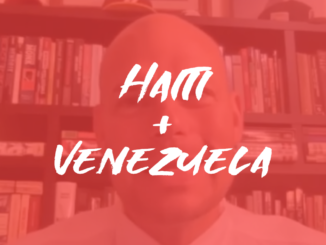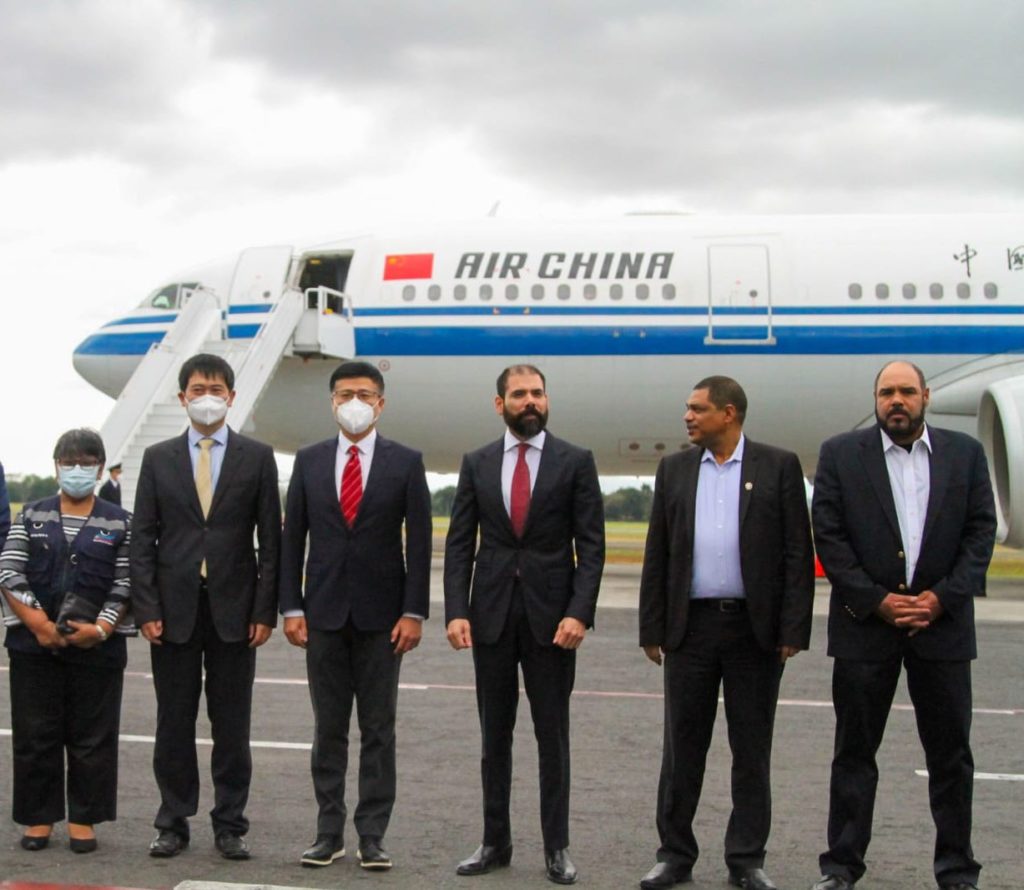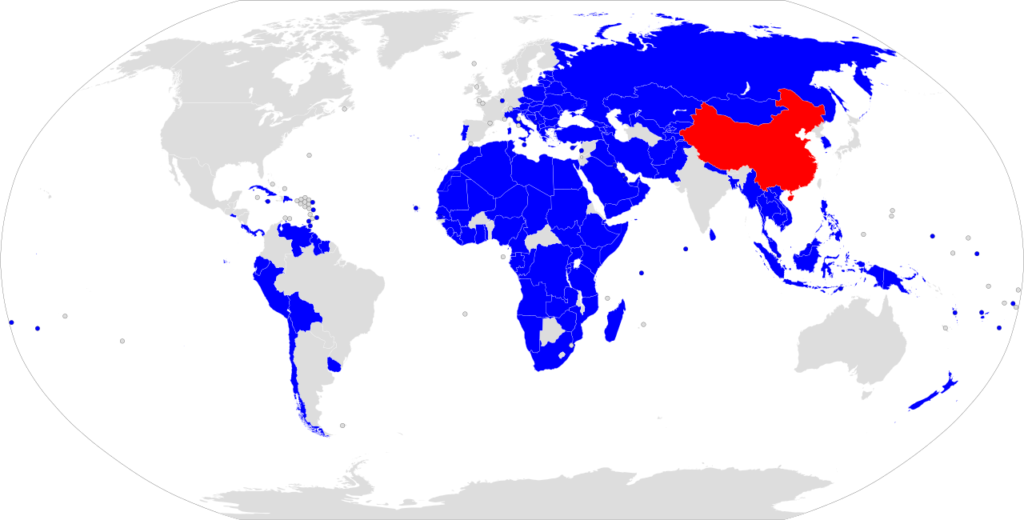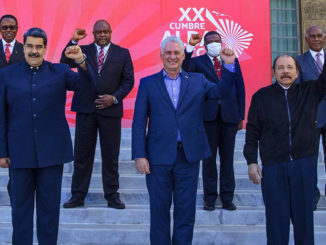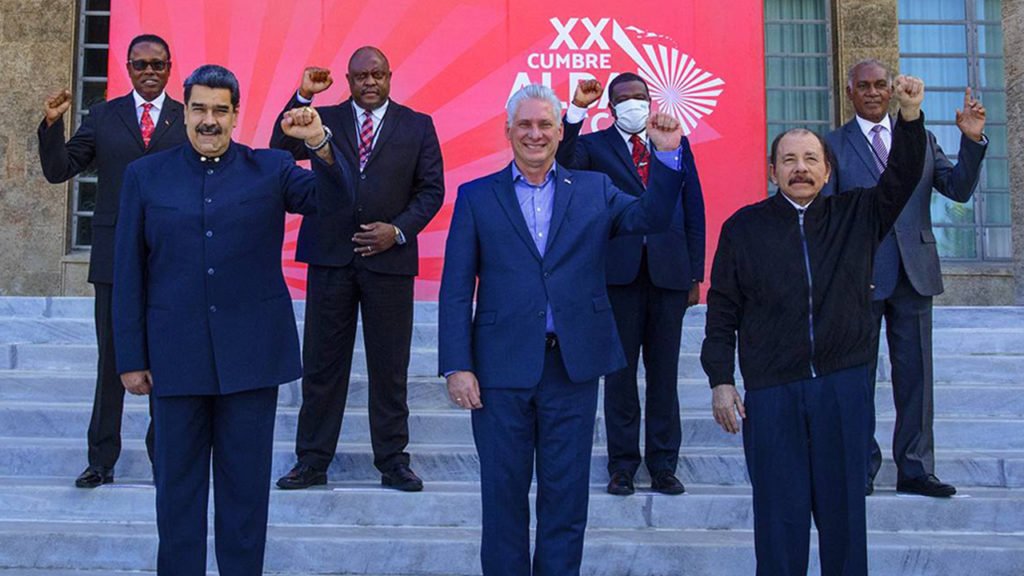Toward Freedom Editor Julie Varughese recently spoke with Ramiro Sebastián Fúnez, a Honduran communist content creator based in Los Angeles. Fúnez produced a film, “Nicaragua Against Empire,” which premiered May 15 on YouTube. The film casts a lens on the landscape, culture and geopolitics that led to the ongoing Sandinista Revolution in Nicaragua. Interviews with Sandinistas, peasants, as well as African and Indigenous peoples of the country’s autonomous zones were captured during a March 2021 13-member delegation Sanctions Kill and the Friends of the ATC (Asociación de Trabajadores Campa, or Rural Peasant Workers Union) organized.
The following interview has been edited for brevity and clarity.
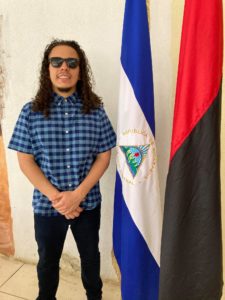
Julie Varughese: Thank you so much for taking the time to speak with me. Let’s start with the purpose of the delegation.
Ramiro Sebastián Fúnez: The delegation I was on was called, “No to Sanctions in Nicaragua.” The ATC is Nicaragua’s oldest and strongest peasant workers union that played a central role in the Sandinista Revolution and was the organization that facilitated the land redistribution of over 4 million acres to peasants from the landlords, owned by the Somoza family dynasty. The delegation was organized by Friends of the ATC, which is the international solidarity organization of that group, and also Sanctions Kill, which a lot of U.S.-based anti-imperialist organizations are part of. The delegation was 13 days long, but I was only able to attend for about 10. It took place from March 12 to about March 25.
JV: All of the delegation participants were asked to complete a project related to this trip. Why did you choose to make a film?
RF: Film is one of the best ways to educate the masses, educate a broad range of people of all educational backgrounds. While I love writing, and my background is in writing and journalism, I feel nowadays people don’t take the time to sit down to read an article as they would to watch a film or documentary. That’s more accessible, especially to people who don’t necessarily know how to read or write. I felt producing a film was the best way to approach the project because it achieved the goal with the maximum end of teaching people and exposing people to the successes of Nicaragua’s Sandinista Revolution. To a broad range of people, not only in the U.S. and the European Union, but all over Latin America, where there is a Nicaraguan diaspora. It also highlights the diversity of revolutionary culture that has been produced by the Sandinista Revolution. Music is a big part of the culture of the Sandinista Revolution. Music that talks about workers’ rights, Sandino and fighting U.S. imperialism. Music, videos and art in one documentary form is the best way to incorporate everything.
JV: What kind of projects did the other participants create?
RSF: Some people made photo essays. That’s a great way to capture the Nicaraguan revolution. Others also wrote articles. I definitely think writing articles about Nicaragua is great. One person did a listicle like, “10 things you need to know.” Also, organizing seeds. The collection of seeds and books. One of the biggest struggles right now for countries that are being pillaged by sanctions is food sovereignty. Being able to grow your own food, independent from Monsanto, independent from the multinational imperialist agricultural companies. For example, in India, we have one of the highest farmer suicide rates in the world, who have been forced into growing GMO food. Part of the delegation work has been to help collect seeds for people in Nicaragua to help them continue to grow Native and Indigenous crops that have been grown in the Americas for thousands of years because the global elites are trying to eliminate that, trying to be the sole creators of these genetically modified seeds. We also collected books in Spanish and in Indigenous Nicaraguan languages like Miskito to deliver them to children on the Caribbean coast, which was hit hard by two hurricanes in November 2020.
JV: Nicaragua is part of what former U.S. National Security Advisor John Bolton called the “Troika of Tyranny.” Nicaragua has been hit by sanctions. How do sanctions affect the country and what can people in the United States do about that?
RSF: John Bolton definitely singled out Nicaragua. At the end of 2018, after the protests, he began imposing more sanctions like the NICA Act, limiting their trade just like with Cuba and Venezuela. I think one thing that sets Nicaragua apart from Cuba and Venezuela is Nicaragua has not been getting love. A lot of the progressive left that supported the Sandinista Revolution in the ‘70s and ‘80s has succumbed to the U.S. propaganda. The solidarity movement for Nicaragua is not as strong, but the problems are still urgent. I think the best way to explain the impact of sanctions is to bring it to a micro level, to bring it to a human level. “Sanction” sounds misleading or not specific. It doesn’t have the same effect as “economic warfare” or “economic blockade.” That’s the reason people in Cuba have referred to the U.S. embargo as a blockade. For example, if we compare the country of Nicaragua to a single mother who has recently lost her job and is struggling to find a job because of a criminal record she got for something she didn’t do. She’s being accused of abusing her children and not giving them food and water. She constantly has these credit card companies on her back, hounding her to sign up for debt and trying to control her life. When she refuses to accept the debt, they make up lies about her. They say she’s not feeding her children, and that when her children try to speak up, she suppresses them. It doesn’t matter if they’re true. The fact is they’re repeated over and over. So sanctions mean where the bank calls you to say, “We can’t do business with you because you’re hitting your kids and not feeding your kids. And if you call a lawyer, we’re going to accuse the lawyer of collaborating with the criminal. We’re going to accuse any workplace that tries to hire you of collaborating with the criminal.” Now that single mother is not able to feed her kids. We were originally supposed to go to Nicaragua in February, but it had to be postponed to March because American Airlines canceled our flights over the sanctions. So now there is less travel—same with commerce. It’s a strangulation.
JV: That’s a very helpful example to use. To use the example of a mother who cannot feed her children. How do these sanctions affect business people who come from outside?
RSF: The economy of Nicaragua had a change in 2007. There’s two stages of the Sandinista Revolution. The first stage was from 1979 to 1989. At this point, the party was more influenced by Marxism-Leninism and by liberation theology, which it still is to a degree. It was more influenced by Marxist economics and it had a very similar command economy model like the Soviet Union and Cuba, where there was very little foreign investment, where there was central planning. There were gains and losses with that model. Obviously, one of the gains was you didn’t have to deal with private enterprise and foreign bourgeois leaders trying to sabotage the economy. The con was it was entirely dependent on the Soviet Union and Cuba. So once the Soviet Union collapsed and once Cuba went into the special period in 1990, that same year Nicaragua’s economy went into a crisis. And that year, they had an election, and the neoliberal candidate, Violeta Chamorro, won the presidency. She implemented free-market reforms. Neoliberalism at its worst, where private companies ruled the country. The second stage of the Sandinista Revolution began in 2007, after the 2006 election of Daniel Ortega. The economic model is very different. The new government is called the Government of Unity and Reconciliation. So even though the Sandinista Party is in the front as a ruling party, it’s a consensus government where they work with the national bourgeoisie, where they’re more open to commerce with the imposition of labor laws. Interestingly enough, this has led to more economic gains, where they have the Sandinista government in power watching private enterprise. So when they mess up, the government is able to kick them out. For example, I visited a cigar factory in Estelí. Nicaragua is one of the biggest producers of cigars now. Even now, cigars that say they are “Cuban cigars” are made in Nicaragua in a factory owned by Cubans from Florida who are not necessarily on the political left. But they’re allowed to trade in the country because they follow the rules of the Sandinista government. I got to tour the cigar factor with the ATC and talk to the workers. While there is a private sector in Nicaragua—including foreigners—it’s still under the control of the Sandinista government. This is very similar to the model we see in Cuba, Vietnam, China or Venezuela. A small private sector does operate in the country as long as the benefits are for the Nicaraguan people.
JV: If sanctions are going to stifle your ability to do business, I almost wonder why anyone would want to stay doing business there.
RSF: That’s a great point. That’s the impact of sanctions. The sanctions are intended to scare these companies out. The sanctions are intended to criminalize any companies doing business with Nicaragua, in order to strangle their economy. That’s why I think the new mode of socialism includes private enterprise. But some use that for a justification, for saying [socialism] doesn’t work.
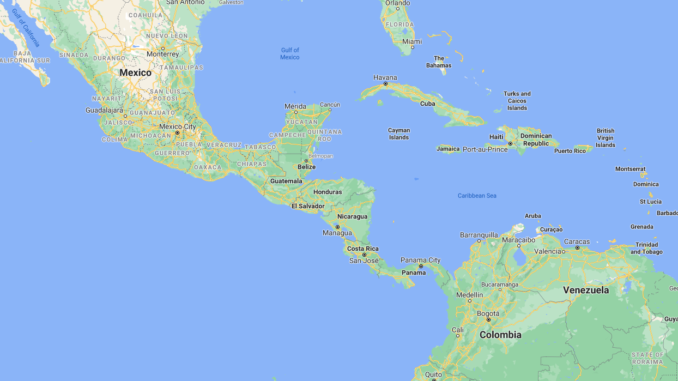
JV: How does the call of Nuestra America (Our America) resonate with the anti-imperialist movement in Nicaragua?
RSF: Nuestra America or Latin America unity is central to Nicaragua. Nicaragua had a central role in those movements in the 20th century, and even before that in movements in Latin America. Nicaragua is at the center of not only Central America, but Latin America, geographically. It’s at the crux of north and south, it’s at the crux of the Caribbean, it’s at the crux of Mesoamerica, which includes Mexico and Central America. And very close by is South America. Nicaragua has historically been in a position to see potential unity between all Latin American and Caribbean countries, especially because it has one of the narrowest points in Central America between both oceans, where an inter-oceanic canal can be constructed to ease trade between all of the countries. Many people in Nicaragua have been working to create this canal to counter the Panama Canal, which is under the control of the U.S. imperialists. And to make this canal for use for the Latin American and Caribbean people. The concept of Nuestra America, which Jose Martí wrote about in his essays in the 1890s, is very central to Nicaragua, to many leaders. For example, the liberator of Central America, Francisco Morazán in the 1800s, who was from Honduras also fought some of his toughest battles in Nicaragua against the Costa Rican nationalists, who wanted to divide and split up the Central American Federation. Morazán, similar to Simón Bolívar in South America, wanted to unite Latin America as a federation of Latin American republics because they understood the United States was the rising imperial power, and the only way to defend their lands from tyranny would be to unite all of the countries as one United States of Latin America. In the early 1900s, you have Augusto César Sendino, who was one of the earliest members of the Central American Communist Party, which was the first, if not, the second communist party in Latin America, that sought to unite Latin America under one communist movement as the Soviet Union was growing. Sendino worked with Martí in El Salvador to build something like a Soviet Union in Latin America. This upheld the idea of Nuestra America, this upheld Martí, Morazán and other people, who envisioned a united Latin America. Later on, when the Sandinistas were able to win in 1979, they also sought to expand the revolution across the region. There’s a Time magazine article in 1980, where they show President Daniel Ortega. It says, “Reagan sees red.” They didn’t want just to claim victory in Nicaragua on the Sandinista front. They wanted to expand socialism across Central America. In late ‘70s and early ‘80s, El Salvador was in the middle of guerrilla warfare, and the Farabundo Martí National Liberation Front (FLMN) was very close to winning the entire country. The Sandinistas were arming, training and supporting them, to eventually revive this idea of a united Central America under socialism. So for many years, Nuestra America has been central to Nicaragua and I would argue Nicaragua has been one of the strongest proponents.
JV: In the United States, African and Indigenous peoples are colonized internally. From what you saw in Nicaragua with the autonomous zones over there, how do you think that would work in a settler-colonial state like the United States?
RSF: That’s a great question. One of the most inspiring things I was able to see in Nicaragua was they are able to not only talk about, but provide autonomy to Black and Indigenous people on the coastal areas. You hear liberals and hipsters in the United States talk about autonomy or free liberated spaces. These same liberals and hipsters will talk about Nicaragua, that it’s a dictatorship and say they betrayed socialism. That they’re revisionists, capitalists and tyrannical. But right now in Nicaragua, the two biggest departments are autonomous. The two autonomous regions make up more than 50 percent of the country. There’s actually more land for Black and Indigenous than for the Mestizo population. They’re building autonomy right now. It serves as a model for many countries, not only in Latin America, but around the world, that have nations within nations. One of the interesting things about comparing Nicaragua to the United States is both are a “prison house of nations,” as Vladimir Lenin described the Russian empire and later the Soviet Union. The United States is an imperialist country that, from its root, has been based on pillaging, colonialism, racism, banking, white supremacy. So the identity of the United States would have to be done away with. Nicaraguan nationalism is at its core anti-imperialist, and it’s a vastly smaller and poorer country. It’s vastly different from U.S. nationalism. But I think modelling the U.S., based on what’s happening in Nicaragua, there would have to be a restructuring of U.S. society, where nationalism and the flag are replaced. And autonomous regions could be created for Africans and Indigenous people, and Hawaii and Puerto Rico. When we flew into the autonomous areas, we needed special visas for traveling to that area. It was very easy with Sandinista representatives. But everything has to be done through local tribes and local communities. They have five levels of government. Aspects that can be learned from is like how private companies and the government have to pay a tax to the Miskito people, or the Garifuna people, or other Afro-Indigenous communities. Not even the government has full control of the land. The local people lease them that space. Same thing with tourism: Foreign companies along the Caribbean coast, which is where a lot of the tourism is with the beaches, they have to pay a tax to the Indigenous groups, who at any point can decide those companies need to leave.
JV: What would you say to people who are interested in making films to share information about alternatives to the system inside the United States and to the U.S. empire?
RSF: It’s all about the story you tell and the people you’re speaking with. I went with a Canon camera that I’ve had for five or six years that cost $200, and a simple audio recorder. With that, I was able to speak to a lot of people. Looking back at the film, there are certain shots I look at, I can say, “I could do this better. I could do that better.” But I was the scriptwriter, the camera person. Everything was me. Everybody could do that. We live in a time where anyone could do that. Some of those shots, I recorded with my iPhone. It’s not so much the technology or equipment. The most important thing was making the right connections. If I didn’t have connections with the ATC, I wouldn’t have been able to have former Sandinista guerrillas show me the country after the armed struggle. That’s why it’s important to get involved with organizations, even if you’re an amateur [filmmaker]. That’s why mainstream media gets these stories wrong, because it’s like these random dudes from Europe dropping into a protest, who just take a flight to Managua. And it’s an illusion, because you go there and see a protest and think, “Okay, this must be good.” But without an OG, without an elder, without somebody who has seen what the country was like before socialism, during the neoliberal period, you’re not going to understand that context. There has to be some level of humility and open-mindedness. The right people are going to show you the right story. If you’re able to meet the right connections, that’s the best way to produce something like this that is able to show a different side of a country that is constantly bombarded by the mainstream media.

